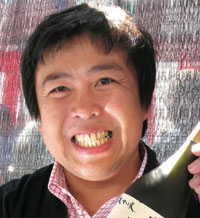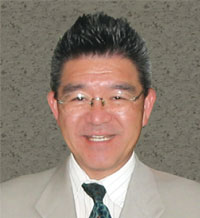To avoid being on the “losing team”
By Yuji Matsumoto
This is a trend I’ve recently noticed in the last two to three years, but I’ve noticed a widening division between the winning vs. losing brands of sake and shochu.
The reason is as follows:
- While the economy is slowly recovering, customers are still reluctant to loosen their purse strings
- The selling products vs. those that don’t are clear at the storefront
- At restaurants, labor costs (next year, the minimum wage will increase), food ingredients, and especially variable costs for fish and seafood, and fixed rental fees are increasing while the cash flow is tight.
Especially on site, because the retention time directly influences the cash flow, future tasks includes how to increase merchandise turnover.
While there is no problem as long as the merchandise is turning over, it’s likely that restaurants are considering that perhaps, it’s better to rotate cheap Japanese sake (if not, it’s a dangerous sign) rather than having expensive Japanese sake worth 500 dollars sit in storage (with a retention period of 2~3 weeks).
What must the sake and shochu industry do in order to remain competitive “winners” in the industry?
-Are you effectively communicating and impressing the quality of your products to customers?
This is the first consideration to be made. The use of materials and verbal communication does not necessarily equate to effective understanding by customers.
For example, do you offer limited promotions?
On site, table tents and creating new menus require already limited time and manpower, with very few restaurants actually able to make such offers. Thus, help from sake manufacturers and wholesalers are greatly appreciated by onsite staff.
Also, more involvement in staff training and study sessions are helpful. To make sure your company brand won’t be one of the ‘losing’ brands, I feel it’s becoming even more important for both sake manufacturers and their wholesalers to place more effort into sales strategies.
負け組にならないために
過去2~3年からの動向ではあるが、最近さらに日本酒・焼酎業界の勝ち組と負け組みがはっきりしてくるように感じられる。
理由としては;
- 景気は若干回復はしているものの依然消費者の財布の紐はかたい
- 現場で売れ筋の商品と売れない商品がはっきりとしてきている
- レストランでは、人件費(来年はさらに最低時給があがる)、素材、特に鮮魚類の価格などの変動費、レントなどの固定費も上昇でキャッシュフローがタイトであることがあげられる。
特に現場では、在庫の滞留時間がキャッシュフローに影響するのでいかに商品回転率をあげるかが課題となってくる。
回転しているのなら問題はないが、値段がはる日本酒を500ドルも抱える(滞留期間2~3週間)より安価な日本酒を回転させ資金を寝かせないよう現場では検討しているはずだ。(していないのら危険信号だ)
では、勝ち組としてレストランにおいてもらうために酒・焼酎業界はなにをしたらよいのか?
―自社の商品の本当のよさを現場に伝え、実行してもらっているか?
が一番の検討事項である。資料や口頭で伝えていても現場で効率的に顧客に伝達しているかは別問題である。
たとえば、期間を決めたプロモーションをオファーしてもらっているか?
現場では、テーブルテントや新しいメニューを作成するのは時間やマンパワーの不足で、できる店は皆無に近い。酒会社や問屋が手助けすることが現場にとって大変ありがたいものだ。
また、従業員のトレーニングの実行、勉強会を手助けするなどいろいろとできるはずだ。自社の商品が負け組みにならないよう酒会社やそれを卸している問屋の営業努力がますます大事となってくるように感じられる。
This is a trend I’ve recently noticed in the last two to three years, but I’ve noticed a widening division between the winning vs. losing brands of sake and shochu.
The reason is as follows:
- While the economy is slowly recovering, customers are still reluctant to loosen their purse strings
- The selling products vs. those that don’t are clear at the storefront
- At restaurants, labor costs (next year, the minimum wage will increase), food ingredients, and especially variable costs for fish and seafood, and fixed rental fees are increasing while the cash flow is tight.
Especially on site, because the retention time directly influences the cash flow, future tasks includes how to increase merchandise turnover.
While there is no problem as long as the merchandise is turning over, it’s likely that restaurants are considering that perhaps, it’s better to rotate cheap Japanese sake (if not, it’s a dangerous sign) rather than having expensive Japanese sake worth 500 dollars sit in storage (with a retention period of 2~3 weeks).
What must the sake and shochu industry do in order to remain competitive “winners” in the industry?
-Are you effectively communicating and impressing the quality of your products to customers?
This is the first consideration to be made. The use of materials and verbal communication does not necessarily equate to effective understanding by customers.
For example, do you offer limited promotions?
On site, table tents and creating new menus require already limited time and manpower, with very few restaurants actually able to make such offers. Thus, help from sake manufacturers and wholesalers are greatly appreciated by onsite staff.
Also, more involvement in staff training and study sessions are helpful. To make sure your company brand won’t be one of the ‘losing’ brands, I feel it’s becoming even more important for both sake manufacturers and their wholesalers to place more effort into sales strategies.
負け組にならないために
過去2~3年からの動向ではあるが、最近さらに日本酒・焼酎業界の勝ち組と負け組みがはっきりしてくるように感じられる。
理由としては;
- 景気は若干回復はしているものの依然消費者の財布の紐はかたい
- 現場で売れ筋の商品と売れない商品がはっきりとしてきている
- レストランでは、人件費(来年はさらに最低時給があがる)、素材、特に鮮魚類の価格などの変動費、レントなどの固定費も上昇でキャッシュフローがタイトであることがあげられる。
特に現場では、在庫の滞留時間がキャッシュフローに影響するのでいかに商品回転率をあげるかが課題となってくる。
回転しているのなら問題はないが、値段がはる日本酒を500ドルも抱える(滞留期間2~3週間)より安価な日本酒を回転させ資金を寝かせないよう現場では検討しているはずだ。(していないのら危険信号だ)
では、勝ち組としてレストランにおいてもらうために酒・焼酎業界はなにをしたらよいのか?
―自社の商品の本当のよさを現場に伝え、実行してもらっているか?
が一番の検討事項である。資料や口頭で伝えていても現場で効率的に顧客に伝達しているかは別問題である。
たとえば、期間を決めたプロモーションをオファーしてもらっているか?
現場では、テーブルテントや新しいメニューを作成するのは時間やマンパワーの不足で、できる店は皆無に近い。酒会社や問屋が手助けすることが現場にとって大変ありがたいものだ。
また、従業員のトレーニングの実行、勉強会を手助けするなどいろいろとできるはずだ。自社の商品が負け組みにならないよう酒会社やそれを卸している問屋の営業努力がますます大事となってくるように感じられる。






